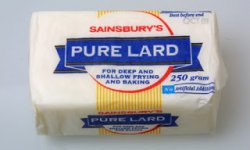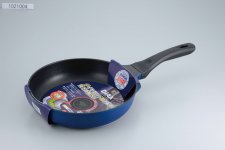We've just experienced -6 and temperatures are due to go down to -12 this weekend. Apart from greasing the seals with a silicone spray or rubbing Vaseline on, does anyone have an alternative that will work in these temperatures?
You are using an out of date browser. It may not display this or other websites correctly.
You should upgrade or use an alternative browser.
You should upgrade or use an alternative browser.
Frozen door seals
- Thread starter french bean
- Start date
Currently reading:
Frozen door seals
They are ok for cold weather but as the temp drops so the viscosity of the grease changes and the effectiveness of the lubrication. All lubricants have a temp range, for example a general purpose grease might be good between - 10 and + 30 Deg C. For freezer work, which are generally at -22 Deg C, the lubricants in the equipment used is changed to suit the cold. Everything freezes eventually and the vaselline was pretty hard when I applied it at -5, so any alternatives?
petroleum jelly attacks rubber silicon oil or a bespoke rubber care type product would be my choice
:yeahthat:
At a pinch, even WD40.
At a pinch, even WD40.
wd40 is not rubber safe ;-)
- Joined
- Apr 8, 2008
- Messages
- 16,742
- Points
- 3,186
Drying the seals helps
its the trapped moisture from been washed / Such cold damp air been sucked in when you open the door slightly
Ziggy
its the trapped moisture from been washed / Such cold damp air been sucked in when you open the door slightly
Ziggy
wipe a pork chop around the seal as it leave a fatty deposit that doesn't freeze.
- Joined
- May 25, 2011
- Messages
- 300
- Points
- 81
pork chop
LOLZ !
- Joined
- Apr 8, 2008
- Messages
- 16,742
- Points
- 3,186
be slightly hard to stick a pork chop in my lock to stop that freezing....
ziggy
ziggy
to be fair in days gone by tallow was used as a lubricant...
My dad used to swear by Trex on his old Austin J4 van...!
wd40 is not rubber safe ;-)
From the manufacturers:
WD-40 Multi-Use Product can be used on just about everything. It is safe to use on metal, rubber, wood and plastic. It can also be applied to painted metal surfaces without harming the paint. Polycarbonate and clear polystyrene plastic are among the few surfaces on which to avoid using a petroleum-based product like WD-40 Multi-Use Product.
It will, however, be inferior, I think to silicone oil in this application. That's why I say "at a pinch"
It will, however, be inferior, I think to silicone oil in this application...
Spent a good twenty minutes, yesterday, liberally applying silicone oil to all the Punto's door seals (and even the boot...): and worked like a dream, this morning (-6°C) -- except for the rear driver's side door....
Will have another go, tomorrow, or Saturday.... Perhaps I wasn't "liberal" enough...?
Of course, the Panda, which has yet to be treated, was absolutely fine...! Pytical.
There is a product that BMW use to prevent this its called rubber care from wurth
http://www.ebay.co.uk/itm/Wurth-Rub...ssories_Car_Care_Cleaning&hash=item1c24e85751
I use it and never have any hassle getting in
http://www.ebay.co.uk/itm/Wurth-Rub...ssories_Car_Care_Cleaning&hash=item1c24e85751
I use it and never have any hassle getting in
This post contains affiliate links which may earn a commission at no additional cost to you.
Gummi Pfledge is what they use in cold weather climates:-
http://www.ebay.co.uk/sch/i.html?_n...=raw&geo_id=32141&keyword=gummi+pflege&crdt=0
http://www.ebay.co.uk/sch/i.html?_n...=raw&geo_id=32141&keyword=gummi+pflege&crdt=0
This post contains affiliate links which may earn a commission at no additional cost to you.
From the manufacturers:
It will, however, be inferior, I think to silicone oil in this application. That's why I say "at a pinch"
Lets just say im not convinced by the makers claims.......
Its petrolium based....
Now you have to remember that there are many different grades of rubber, Rubber used as engine gaskets and o-rings are petroleum resistant / proof where as others are not....
much like brake caliper seals some are dot 4 proof and will be distroyed by mineral brake oil like wise some made for mineral oil (jaguar use mineral / or did) will be eaten by dot 4...
Also go on any caravan forum and its grounds for a beating with a corner steddy brace if you suggest using wd-40 on your car to caravan power plugs... as from experience it attacks the plastic making it brittle yet spray on another type of plastic it will be fine.....
A
I'll not go on a caravan website (well, perhaps a verdun/vardo one) as long as I inhabit this planet. For plastics, again from the manufacturers:
WD have so much of the market (and are so liable to legal action) that they're unlikely to make false claims. What would be the point?
lso go on any caravan forum and its grounds for a beating with a corner steddy brace if you suggest using wd-40 on your car to caravan power plugs... as from experience it attacks the plastic making it brittle yet spray on another type of plastic it will be fine.....
I'll not go on a caravan website (well, perhaps a verdun/vardo one) as long as I inhabit this planet. For plastics, again from the manufacturers:
Polycarbonate and clear polystyrene plastic are among the few surfaces on which to avoid using a petroleum-based product like WD-40 Multi-Use Product.
WD have so much of the market (and are so liable to legal action) that they're unlikely to make false claims. What would be the point?
in days gone by tallow was used as a lubricant
I used to use it many years ago in the aircraft industry
Similar threads
- Replies
- 5
- Views
- 250
- Replies
- 18
- Views
- 4K



